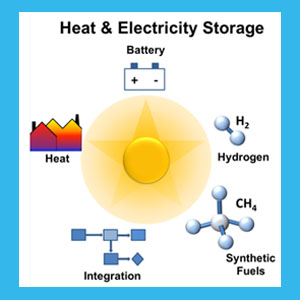Speaker
Ms
Xiaojin Zhang
(Technology Assessment group, Paul Scherrer Institute, CH 5232 Villigen PSI)
Description
The future Swiss electricity supply system is expected to rely strongly on stochastic renewable generation such as photovoltaic and wind power. As a consequence, more and more flexibility is required and storage technologies will play a vital role in the integrated energy systems of the future. Under SCCER-Storage Work Package (WP) 5.1, integrated assessment for various storage technologies will be performed to better understand the impacts of these technologies in terms of environment, economy and their technology performance, and how they could be integrated into the overall energy system in the future. Life Cycle Assessment (LCA), as a key component in the technology assessment framework, has been applied to investigate the environmental impact of these technologies. In this poster, an example of how LCA is performed to assess the technology, and what results it could generate for decision makers’ reference has been presented over a case study on the power-to-gas system that is going to be built at Rapperswil Switzerland. The system is designed to convert electricity generated from renewable energy to hydrogen through electrolysis. The hydrogen generated is further reacted with carbon dioxide to produce methane, which will be dehydrated, compressed and eventually supplied to power cars. The work addresses LCA-implications of using methane from the power-to-gas system versus employing natural gas from conventional gas grid.
Author
Ms
Xiaojin Zhang
(Technology Assessment group, Paul Scherrer Institute, CH 5232 Villigen PSI)
Co-authors
Mr
Christian Bauer
(Technology Assessment group, Paul Scherrer Institute, CH 5232 Villigen PSI)
Mr
Christopher Mutel
(Technology Assessment group, Paul Scherrer Institute, CH 5232 Villigen PSI)

